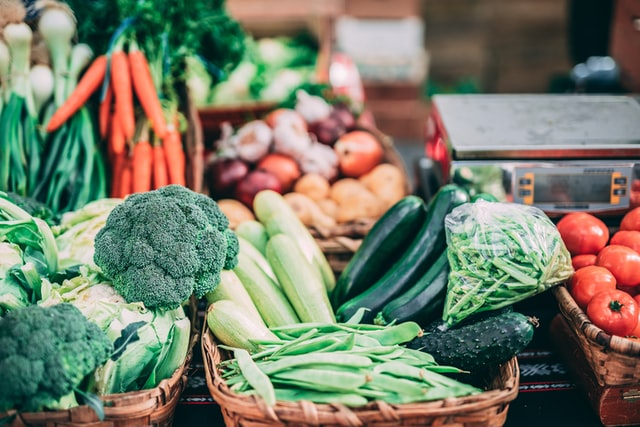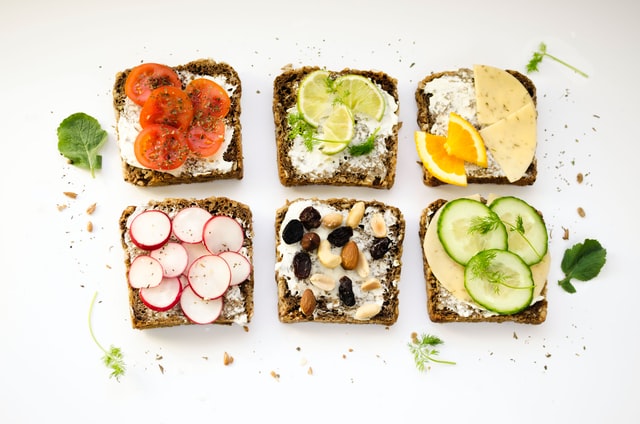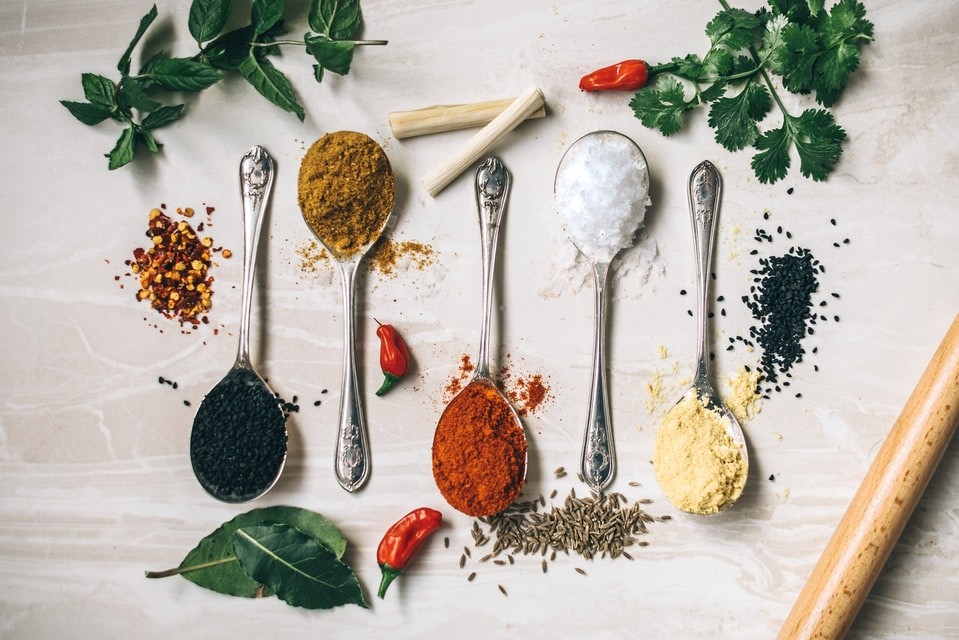Summer is often associated with hot days, cold drinks, abundant fresh produce, outdoor activity, holiday fun, and generally a glorious freedom from the illnesses that besiege us in the colder months! And yet, the “summer cold”, while more rare than winter colds, can strike when we are least expecting it…
Immune function is a common focus for many people in the autumn when life goes through a transition with colder weather, warmer clothes, kids returning to school, and more time spent indoors on the whole. Similarly, the shifts that accompany spring tend to trigger a renewed awareness of immune health with the warm days and cold nights and the surge in colds that often come with it. The return of pollens to the air in spring can also confuse the issue of colds vs. allergic reactions but still turns the spotlight back to the immune system.

Where And What Exactly Is The Immune System?
The immune system is complex with a wide range of cell types dispersed throughout the body. These cells have a common purpose of protecting us from invaders, removing our own cells that are diseased or infected, and healing up damage done by infection or trauma. They are like the knights of a castle (the body) protecting it from external danger. (1) Immune cells include white blood cells (of which there are five different kinds!) as well as other specialized cells. Some migrate throughout the blood and the tissues ready to heal a paper cut or sprained ankle, but the majority of them huddle in areas of lymphoid tissue that line the periphery of our body. There is the BALT (Bronchus-Associated Lymphoid Tissue) in our airways, the GALT (Gut-Associated Lymphoid Tissue) in our digestive tract, and the less specific MALT (Mucosal Associated Lymphoid Tissue) (2).
Some cells send out the alarm, some cells respond to the threat, and some cells are mostly on clean up crew but together their job is to keep us alive during our lifelong exposure to viruses, bacteria, fungi/yeast/molds, trauma, and any mistakes that may occur during cellular replication. (that may in turn become cancerous)
Ways To Support The Immune System
Immune function can be weak resulting in frequent or lingering infections, or it can be excessively responsive in the case of allergies (in which inert substances are viewed as a threat) or autoimmune conditions (in which the body attacks our own cells) or chronic inflammation (which impairs the function of the inflamed tissues). So sometimes we want to nudge the immune response temporarily, sometimes we want to cool it down, and other times we need to moderate it and help it behave appropriately in the long-term.

Nutrition
Nutrients from foods and supplements are always a great place to start in supporting ANY part of the body, and the immune system is no exception.

Food
A colourful, whole foods, plant-based diet is the foundation for optimal health in the body (plant-based with a side of meat for the omnivores!). We know about vitamins and minerals but there are thousands of other compounds in foods (phenols, cyanidins, flavonoids) that are still being discovered. A range of pigments and flavours from a variety of fruits and vegetables should be the mainstay of every meal, whether that’s a smoothie containing fruits and greens or an egg/tofu scramble with veggies in the morning, and salads, stir-fries, curries, soups, and stews for lunches and dinners.

Notable Nutrients
Key nutrients with a known influence on immune health include:
Vitamin C
Citrus fruits and bell peppers are excellent sources of vitamin C (ascorbic acid), which modulates white blood cell activity, is anti-oxidant, has anti-viral effects, and is used in collagen synthesis making it necessary for tissue repair (3).
Vitamin D
Vitamin D is mostly found in organ meats, fortified dairy products, and mushrooms that have been exposed to sunlight…and since many people avoid eating the above food groups, vitamin D deficiency it is one of the most common nutrient deficiencies in North America! We make vitamin D ourselves when skin is exposed to UVB light, but with sunscreen use and sun avoidance that avenue is also limited. Vitamin D has a range of effects in the body including modulation of immune function. Vitamin D deficiency is associated with both autoimmune diseases and increased risk of influenza infection (4). It’s easy to supplement with vitamin D. Botanica’s Vitamin D Capsules are sourced from organic portabello mushrooms that have been exposed to UVB light making it a wonderful and effective vitamin D supplement for everyone including vegans.
Zinc
Zinc has a range of effects in supporting the immune system from supporting adequate levels of various white blood cells (WBCs), to improving signalling between the WBCs (5).
Herbal Support for Immune Health
Herbs are great additions to your “toolbox” for optimizing immune health. Some are tonics to strengthen us and make us more resilient – and therefore less likely to fall ill or have misbehaved immune responses, while others are more effective in recruiting the right type of immune cell to the site of infection or injury.

PREVENTION
To avoid getting sick in the first place it’s essential to stay on top of the basic parameters of good health: a balanced, nutritious diet; adequate restorative sleep; exercise; hydration; stress management; supplementation as needed. Herbs and mushrooms that support stress response and adrenal health often regulate immune balance as well by moderating cortisol levels. High cortisol (from high stress) lowers immune response which is a necessary part of regulating the immune response, but if stress and cortisol levels are high then lowered immunity may result, and if cortisol levels become inadequate through prolonged stress then inflammation may run rampant! Stress management is key for balanced immune function!
Stress management needs to be addressed by both mind and body. Meditation, mindfulness, reframing negativity when possible, setting boundaries, sleep, and connecting with loved ones is just as important as supporting the physical body with nutrients and herbs in order to keep stressful situations in perspective and prevent them from having a detrimental effect on our health.
Herbs that help with physical, emotional, and mental stresses are called “Adaptogens” because they help us to adapt. Some key adaptogens that have historical use for supporting immune health as well include Astragalus (Astragalus membranaceus), Reishi (Ganoderma lucidum), and Licorice (Glycyrrhiza glabra) (6). In Traditional Chinese Medicine (TCM) many herbs that are classified as “tonics” have adaptogenic effects. The principle that balanced health in all organs increases resilience in times of stress be that emotional, physical, or infectious connects TCM with Western herbal understanding.

ACUTE CARE
Despite our best intentions and proactive approach to strong immune function we will inevitably fall sick from time to time. It’s okay! Working through the common cold once or twice a year is a chance for the immune system to stay sharp and ready to respond appropriately to future infections. Items that I always have on hand for when “that feeling” of impending illness starts are:
Echinacea (Echinacea spp)
Possibly the most widely known herb for immune support when up against viral infections, Echinacea has been well studied and shown to be helpful in both the prevention and treatment of the common cold (7).
Oregano (Origanum vulgare)
Another Mediterranean herb with a long history of use is oregano. Human studies are lacking but in vitro and animal studies show a range of antimicrobial effects from oregano oil (8).
Lifestyle Tools For Acute Illness
The importance of rest during illness cannot be overstated. In our busy world it has become all too normal to push through an illness, with one over-the-counter medication even running ads saying “If you think a cold is going to stop me, you don’t know me, you don’t know (the medication)”. This completely overrides our innate wisdom to curl up and rest when fighting an infection, even a mild “common” cold! Take the time to rest, enjoy hot baths, and snuggle up with a cup of herbal tea when ill and you will be giving your body the time and space it needs to heal so that you get back to regular life sooner. If you ignore an illness as a sign that you are out of balance then it is likely that you will end up farther out of balance and more susceptible to future infections. Convalescence is not weakness but an essential part of the healing process so that you come out of the sickness healthy, and hopefully even more resilient.

References
- Chaplin DD. Overview of the immune response. J Allergy Clin Immunol. 2010;125 (2 Suppl 2):S3‐ doi:10.1016/j.jaci.2009.12.980
- https://en.wikipedia.org/wiki/Mucosa-associated_lymphoid_tissue
- https://ods.od.nih.gov/factsheets/VitaminC-HealthProfessional/
- Nair R, Maseeh A. Vitamin D: The “sunshine” vitamin. J Pharmacol Pharmacother. 2012;3(2):118‐ doi:10.4103/0976-500X.95506
- Wessels I, Maywald M, Rink L. Zinc as a Gatekeeper of Immune Function. Nutrients. 2017;9(12):1286. Published 2017 Nov 25. doi:10.3390/nu9121286
- Liao LY, He YF, Li L, et al. A preliminary review of studies on adaptogens: comparison of their bioactivity in TCM with that of ginseng-like herbs used worldwide. Chin Med. 2018;13:57. Published 2018 Nov 16. doi:10.1186/s13020-018-0214-9
- Shah SA, Sander S, White CM, Rinaldi M, Coleman CI. Evaluation of echinacea for the prevention and treatment of the common cold: a meta-analysis [published correction appears in Lancet Infect Dis. 2007 Sep;7(9):580]. Lancet Infect Dis. 2007;7(7):473‐ doi:10.1016/S1473-3099(07)70160-3
- ELGAYYAR, F. A. DRAUGHON, D. A. GOLDEN, J. R. MOUNT; Antimicrobial Activity of Essential Oils from Plants against Selected Pathogenic and Saprophytic Microorganisms.J Food Prot 1 July 2001; 64 (7): 1019–1024.
